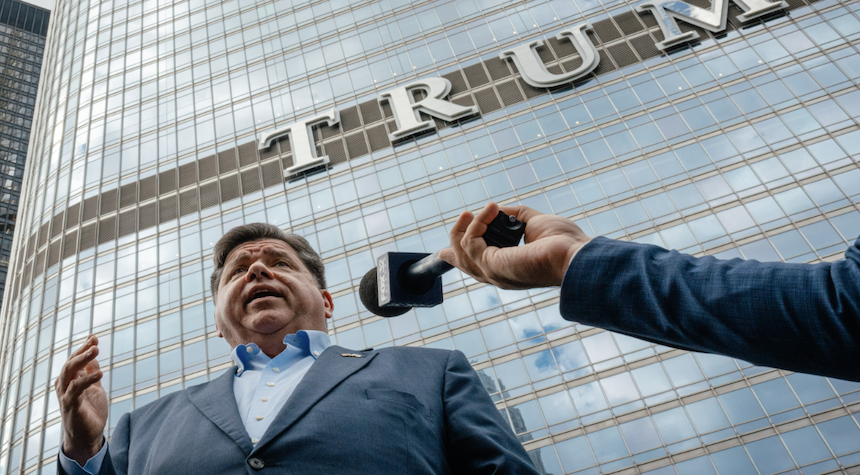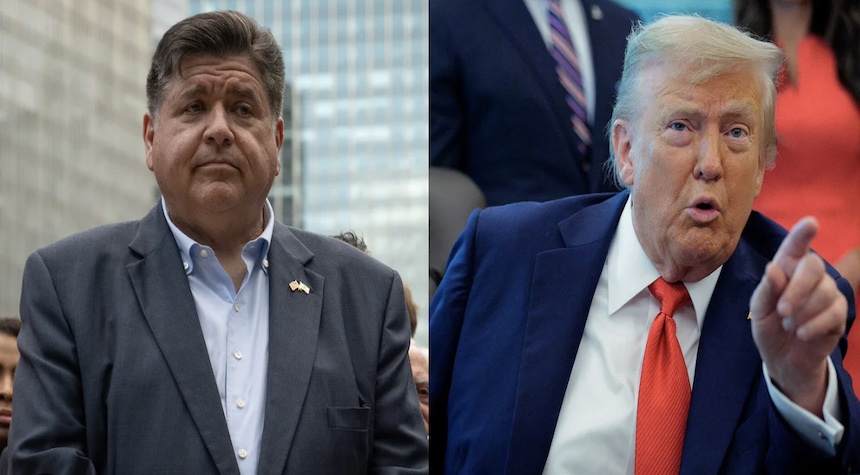President Donald Trump has issued a stern warning to Illinois Governor JB Pritzker, cautioning against blocking federal reinforcements intended to curb the recent surge in violence in Chicago, a city he has branded as “the murder capital of the world.”
Reports from the Windy City indicate that over the Labor Day weekend, at least 54 people fell victim to gun violence, with eight fatalities. Trump has pointed to these figures as evidence that Chicago has become an epicenter of danger and crime. With reference to these numbers, the president stressed the urgency of the situation, insisting that federal assistance could swiftly alleviate the crime problem, much like he claims was done in Washington, D.C.
Related: Chicago Mayor Pushes Back Against Trump’s Immigration Crackdown
Trump drew comparisons between Governor Pritzker and D.C. Mayor Muriel Bowser. The president, who has frequently clashed with Bowser, held her up as an example for leaders of what he calls sanctuary cities and states, citing her cooperation with federal authorities in suppressing crime. He claims that Bowser’s decision to allow federal resources to help secure D.C. streets had led to a significant increase in her approval rating.

The significance becomes clear when we consider Trump’s statements about other cities. The president suggested that D.C.’s positive turnaround could be replicated in cities with high crime rates, including Chicago, Los Angeles, New York, and Baltimore. He also highlighted the willingness of some leaders, even those who have criticized him, to accept federal resources to combat crime, address homelessness, and tackle the ongoing immigration crisis.
Trump also made a remark towards Mayor Bowser about the eventual withdrawal of federal forces. In his statement, he warned Bowser about the necessity of maintaining the safety and cleanliness of D.C., cautioning her against returning to “woke” policies.
This development follows earlier reports about rising gun violence in many U.S. cities, raising important questions about the roles of local and federal authorities in crime prevention and control. As the situation continues to unfold, it remains crucial for the public to stay informed and for leaders to make decisions based on verified facts and data.

